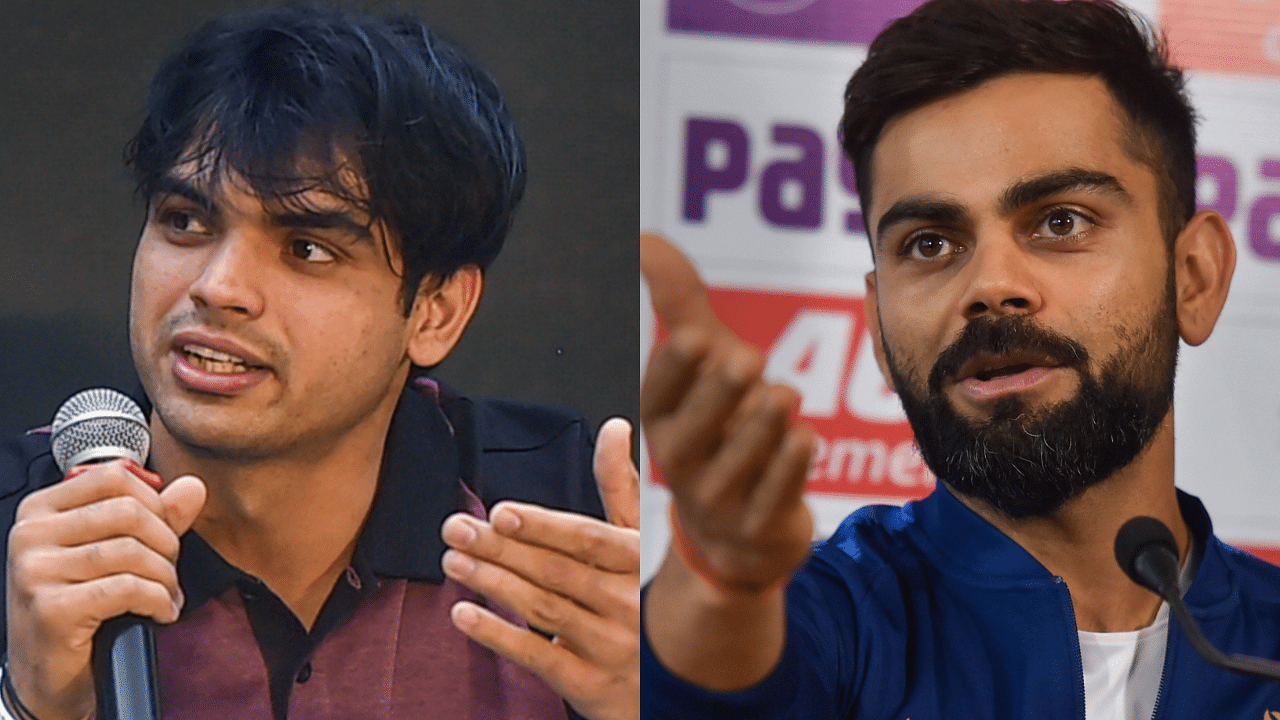
When Virat Kohli, captain of the Indian cricket team, called out abusers trolling his teammate Mohammed Shami, he broke a long and enduring silence. A silence that, with time, has emboldened abusers to up the ante, going after any and everyone who outrages them for whatever reason.
The silence among celebrities, and in Indian society at large, to acts of violence (verbal and physical) and the cold indifference to an all-pervasive culture of bullying is disheartening, to say the least. In recent weeks, we have heard Bollywood's deafening silence as Shah Rukh Khan's son, Aryan Khan, was repeatedly denied bail and kept behind bars for nearly a month on alleged drug charges.
In this moment of silence, Kohli's forthright defence of his colleague has opened up a space of celebrity resistance—however rare and ephemeral it may turn out to be.
Sticking up for his teammate Mohammed Shami, targeted on social media after India lost to Pakistan in their opening T20 World Cup match, Kohli said, "to me, attacking someone over their religion is the most pathetic thing that a human being can do. Everyone has the right to voice their opinion over what they feel about a certain situation, but I personally have never ever even thought of discriminating (against) anyone over their religion." Strong words in a climate of incessant and violent bullying of minorities.
Yet, the words remain just a ripple in still waters. Mounting a robust challenge to the present spiral of violence would need more celebrities and high-profile people to break their silence and rediscover their voices. Following Kohli's defence of Shami, a troll, characteristically, levelled rape threats against the cricketer's nine-month-old daughter. Such abuse flourishes in an ecosystem where powerful leaders of the ruling Bharatiya Janata Party (BJP) have embraced a nudge-and-wink strategy, a strategy borne out by their studied hesitation to speak on such occasions. The habitual failure of the political class to take a clear stand against abuse on or off-line is part of the sickness roiling the heart of India.
Congress leader Rahul Gandhi's Tweet supportive of Kohli was, in this context, a welcome intervention. Gandhi asked the cricketer to "forgive" those trolling him: "Dear Virat, these people are filled with hate because nobody gives them any love. Forgive them." One regrets more politicians have not lent their support to Kohli—or, indeed, Shami—by denouncing the attacks.
This August, we heard another rare voice of courage when Olympic gold medal winner, Neeraj Chopra, snubbed trolls by defending a fellow javelin thrower from Pakistan. Chopra urged people not to "further vested interests and propaganda."
A question mark hangs over the attitude of society in general. Who are we as a people? Endless invocations of peace, tolerance, and non-violence resound with hollowness today. People seem to care little about the fate of others, often rejoicing in their abuse and humiliation. The lack of response from the top of the political chain of command is matched by a lack of response from society at large. Perversely, parties leverage such inertia and apathy.
Also Read | Sangh and Hindutva: The expanding footprint
To his credit, Kohli minced no words in showing bullies their place. "People take out their frustrations because they obviously have no understanding of what we do as individuals. They have no understanding of how much effort we put on the field," he said. Habitual abusers have little appreciation for the sport or an understanding of the pressures players perform under.
Unequivocal political condemnation and punishment of abusers can go a long way in reining in cultures of bullying and hate-mongering. This month, a man was jailed in the United Kingdom for streaming live racial abuse of three British football players on Facebook.
It would be interesting to know if the police have tracked down the bullies who abused Kohli and what action has been taken against them. Further, we can say that continued inaction and lack of punishment or selective punishment have led to the predicament we find ourselves in today.
For instance, in February 2020, in the presence of a senior police officer, BJP leader Kapil Mishra threatened anti-Citizenship Amendment Act protesters, saying violence would ensue if they were not removed from the roads. The northeast riots in Delhi erupted soon after his statements.
Also Read | Time to reframe the 'Hindu vs Muslim' problem
No action has been taken against Mishra, who, last week, levelled similar threats at a Govardhan puja organised by members of the Sanyukt Hindu Sangharsh Samiti in Gurgaon at the Sector 12A site, where namaz is taking place under police protection. Referring to restrictions on bursting firecrackers, Mishra said, "Yesterday on Diwali, a lot of orders and edicts had been imposed on Hindus all over the country. And what was the result? Jitna dabaoge, jitna atyachar karoge… we are peace abiding people. But agar daboage toh wahi hoga jo pure desh mein hua hai. If we are pushed to the wall, then a push has to be given in response (phir ek dhakka toh maarna hi padta hai)."
More and more organisations, regardless of how powerful they are, are yielding to mob diktats, from Fabindia pulling its Jashn-e-Riwaaz Diwali advertisement to fashion and jewellery designer Sabyasachi Mukherjee withdrawing his mangalsutra ad. Even a powerful brand like Dabur ditched an ad showing a lesbian couple celebrating Kava Chauth, apologising for "unintentionally hurting people's sentiments."
The high measure of tolerance for violence is being matched in equal measure by intolerance for freedom and cultural and religious differences. How much worse does it have to get before it gets better?
(Monobina Gupta is the author of 'Left Politics in Bengal' and 'Didi: A Political Biography')
Disclaimer: The views expressed above are the author's own. They do not necessarily reflect the views of DH.